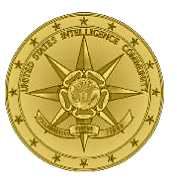Intelligence Community Interviewing Best Practices
 We have conducted hundreds of interviews and although we do not offer specific feedback to interviewees, we wanted to share observations from the evaluation and selection process:
We have conducted hundreds of interviews and although we do not offer specific feedback to interviewees, we wanted to share observations from the evaluation and selection process:
1. Be Deeply familiar with the Vacancy Announcement. Always read the vacancy announcement’s Mission Duties and Responsibilities (MDRs) and required qualifications very closely. Questions at the interview are based on these duties and responsibilities. If you do not have experience in some of the areas highlighted, then you should develop a plan to highlight for the hiring panel how your existing experiences and strengths might apply. For example, you may not have a counterterrorism background, but you have a lot of experience synthesizing large amounts of information and writing results in a clear way. Highlight that or develop narratives that demonstrate equivalency.
2. Create your Professional Narrative. You will have a short amount of time (usually 30 minutes or less) to present your qualifications to interviewers. Develop your narrative on how you arrived at this interview. We do not mean mode of transportation! Your narrative should include your academic and professional experience, your affinity for the type of work, why you think you are uniquely qualified for the position, and how you can benefit the organization. If you have a personal reason for wanting to be part of the workforce, it can help to briefly mention how you were inspired towards this type of work. Try to be as specific about why you want to serve in whichever organization to which you are applying. The key is to be organized and succinct with your thoughts. Depending on the interview questions, you may never have a chance to present your narrative in full, but it should guide you in your answers to all questions.
3. Strike a Balance Between Specific Mission Knowledge and General Skill Sets. It is important to understand and have some academic and professional knowledge about the mission of an organization where you want to work. However, there are additional skills that interviewers look for. Have you shown flexibility and ingenuity? Can you learn complicated topics quickly? Can you work in a team environment? You should be able to demonstrate both specific and general skill sets that would make you a good employee and demonstrate the ability to take initiative.
4. Prepare. Prepare. Prepare. Know the mission of the organization. For example, know how the Intelligence Community fits into the larger U.S. government effort. Do your best to know about some of issues that your interviewers are probably following. Set up news alerts, read media feeds, and know what areas are important to national security professionals. Many organizations like the National Defense University have in-depth articles free of charge.
5. Be Yourself. Interviews can be stressful, but being genuine about your skills, abilities, and passion for the job is important. Try your best to give interviewers a sense of who you are and what drives you. Passion for the work is something interviewers look for. Also, be honest about where you can improve – interviewers are looking for self-awareness and the ability to take feedback and act on it. Saying that your biggest weakness is that you work too hard, will not answer the interviewers’ question.
6. Keep Applying. Even if you are not offered a position, the more you interview, the more comfortable you will get. Be dogged about going after a position that you want. Don’t give up. Government service is immensely rewarding and worth the wait.
To apply for careers in the Intelligence Community visit: